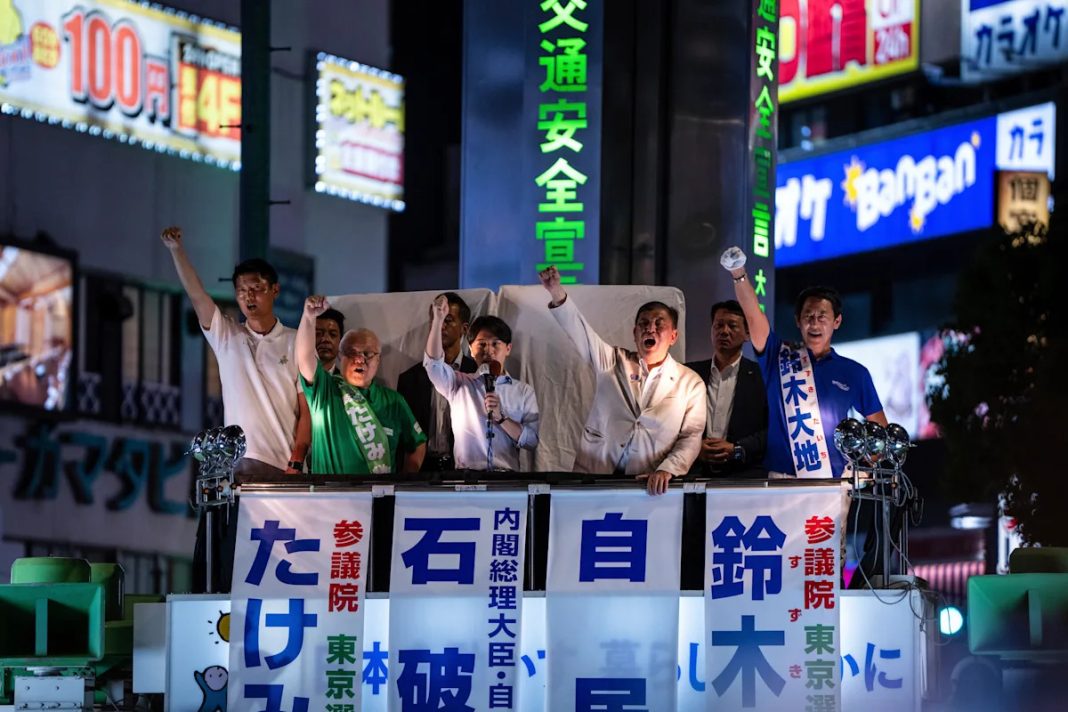TOKYO — Exit polls show Prime Minister Shigeru Ishiba ‘s ruling coalition is likely to lose a majority in the smaller of Japan’s two parliamentary houses in a key election Sunday, worsening the country’s political instability.
Voters were deciding half of the 248 seats in the upper house, the less powerful of the two chambers in Japan’s Diet.
Ishiba has set the bar low, wanting a simple majority of 125 seats, which means his LDP and Komeito Liberal Democratic Party and its Buddhist-backed junior coalition partner Komeito need to win 50 to add to the 75 seats they already have.
That is a big retreat from the 141 seats they had pre-election, but media surveys predict big setbacks for Ishiba.
Exit poll results released seconds after the ballots closed Sunday night mostly showed a major setback for Ishiba’s coalition. Japan’s NHK television projected a range of 32-51 seats for the prime minister’s coalition, while other networks projected it would win just over 40 seats.
A poor performance in the election would not immediately trigger a change of government because the upper house lacks the power to file a no-confidence motion against a leader, but it would certainly deepen uncertainty over his fate and Japan’s political stability. Ishiba would face calls from within the LDP party to step down or find another coalition partner.
Soaring prices, lagging incomes and burdensome social security payments are the top issues for frustrated, cash-strapped voters. Stricter measures targeting foreign residents and visitors have also emerged as a key issue, with a surging right-wing populist party leading the campaign.
Sunday’s vote comes after Ishiba’s coalition lost a majority in the October lower house election, stung by past corruption scandals, and his unpopular government has since been forced into making concessions to the opposition to get legislation through parliament. It has been unable to quickly deliver effective measures to mitigate rising prices, including Japan’s traditional staple of rice, and dwindling wages.
President Donald Trump has added to the pressure, complaining about a lack of progress in trade negotiations and the lack of sales of U.S. autos and American-grown rice to Japan despite a shortfall in domestic stocks of the grain. A 25% tariff due to take effect Aug. 1 has been another blow for Ishiba.
Ishiba has resisted any compromise before the election, but the prospect for a breakthrough after the election is just as unclear because the minority government would have difficulty forming a consensus with the opposition.
Frustrated voters are rapidly turning to emerging populist parties. The eight main opposition groups, however, are too fractured to forge a common platform as a united front and gain voter support as a viable alternative.
The emerging populist party Sanseito stands out with the toughest anti-foreigner stance, with its “Japanese First” platform that proposes a new agency to handle policies related to foreigners. The party’s populist platform also includes anti-vaccine, anti-globalism and favors traditional gender roles.

